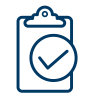The Anti-Doping Rules
Just as each sport has rules to determine how it is played or performed, there are Anti-Doping Rules in place to protect clean sport.
Doping is defined in the World Anti-Doping Code as the occurrence of one or more of the Anti-Doping Rule Violations (ADRVs).
It's much more than a positive test.
You will find the current UK Anti-Doping Rules below.
The facts - what you need to know about the 11 ADRVs
There are 11 ADRVs. All 11 apply to athletes, two (in bold) also apply to athlete support personnel and five (in bold) also apply to athlete support personnel and other persons.
Apply to athletes only
- Presence
- Use or Attempted Use
- Evading, Refusing or Failing to Submit to Sample Collection
- Whereabouts failures
Apply to athletes and athlete support personnel
- Possession
- Administration or Attempted Administration
Apply to athletes, athlete support personnel and other persons
- Tampering or Attempted Tampering
- Trafficking or Attempted Trafficking
- Complicity or Attempted Complicity
- Prohibited Association
- Acts by an Athlete or Other Person to Discourage or Retaliate Against Reporting to Authorities
What that means for you
Athletes need to make sure they are fully aware of ALL the Anti-Doping Rule Violations and what the consequences are for breaking them. Visit our athlete support personnel hub for further information on checking medications, supplement risks, the testing process and much more.
Refusing a test, as an example, could lead to a four-year ban.
And remember, ADRVs are just like the rules in sport - it’s out or it’s in, it’s an official time or it’s not - but that is not everything.
Clean sport is more than rules - it is also how you train and compete in sport, and how you conduct yourself both on and off the field of play.
If in doubt, check your National Governing Body’s website for more information on your sport's anti-doping rules.
2021 World Anti-Doping Code
Under the 2021 World Anti-Doping Code, an athlete may be determined as being either a “International-Level”, “National-Level” or a “Recreational Athlete”.
International-Level
It is the responsibility of each International Federation to define what constitutes an athlete as being “International-Level” within their sport. Athletes are advised to check with their International Federation if they are unclear on whether they are defined as being an “International-Level Athlete”.
National-Level
It is the responsibility of UKAD to determine what constitutes an athlete as being “National-Level” within the UK.
Within the 2021 UK Anti-Doping Rules, an athlete that falls into any of the following categories is defined as a “National-Level Athlete”:
- An Athlete in UKAD’s National Registered Testing Pool (NRTP) or Domestic Testing Pool (DTP). Read more information on the Whereabouts requirements for the NRTP and DTP
- An Athlete in UKAD’s National TUE Pool
- An Athlete supported through UK Sport’s World Class Programme funding, or in direct receipt of a UK Sport or Home Country Sports Council Athlete Performance Award
- An Athlete who is in or who in the last six months has been in a squad representing Great Britain, England, Scotland, Wales or Northern Ireland (a) at senior level; or (b) at junior levels that are published in the dropdown list below
- An Athlete selected to compete at or forming part of a squad competing at an International Event in an open senior category but who is not defined as an International Level Athlete by the relevant International Federation
- An Athlete who does not fall within any of the above categories but who meets objective criteria that are specific to the sport in which the Athlete competes (e.g., based on the level of competition at which the Athlete competes) that are published in the dropdown list below
Additional categories of a National-Level Athlete (Criteria 4b and 6)
Recreational Athlete
It is also the responsibility of UKAD to determine what constitutes a “Recreational Athlete”. Under the 2021 UK Anti-Doping Rules, this is defined as:
An Athlete who is under the jurisdiction of the NGB and who, within the five years prior to committing any Anti-Doping Rule Violation,
- has not been an International-Level Athlete (as defined by each International Federation) or a National-Level Athlete (as defined by UKAD);
- has not represented Great Britain or any other country in an International Event in an open category; and
- has not been included within any Registered Testing Pool or other whereabouts information pool maintained by any International Federation or National Anti-Doping Organisation


